
Quantum teleportation researchers have developed a method to improve teleportation quality in noisy conditions by using hybrid entanglement of photons, achieving nearly perfect state transfers. Credit: SciTechDaily.com
Researchers succeeded in conducting an almost perfect quantum teleportation despite the presence of noise that usually disrupts the transfer of quantum state.
In teleportation, the state of a quantum particle, or qubit, is transferred from one location to another without sending the particle itself. This transfer requires quantum resources, such as entanglement between an additional pair of qubits. In an ideal case, the transfer and teleportation of the qubit state can be done perfectly. However, real-world systems are vulnerable to noise and disturbances — and this reduces and limits the quality of the teleportation.
Advancements in Noise-Resilient Teleportation
Researchers from the University of Turku, Finland, and the University of Science and Technology of China, Hefei, have now proposed a theoretical idea and made corresponding experiments to overcome this problem. In other words, the new approach enables reaching high-quality teleportation despite the presence of noise.
“The work is based on an idea of distributing entanglement — prior to running the teleportation protocol — beyond the used qubits, i.e., exploiting the hybrid entanglement between different physical degrees of freedom,” says Professor Jyrki Piilo from the University of Turku.
Hybrid Entanglement Technique
Conventionally, the polarization of photons has been used for the entanglement of qubits in teleportation, while the current approach exploits the hybrid entanglement between the photons’ polarization and frequency.
“This allows for a significant change in how the noise influences the protocol, and as a matter of fact our discovery reverses the role of the noise from being harmful to being beneficial to teleportation,” Piilo describes.
With conventional qubit entanglement in the presence of noise, the teleportation protocol does not work. In a case where there is initially hybrid entanglement and no noise, the teleportation does not work either.
“However, when we have hybrid entanglement and add noise, the teleportation and quantum state transfer occur in almost perfect manner,” says Dr. Olli Siltanen whose doctoral dissertation presented the theoretical part of the current research.
Implications of the Research
In general, the discovery enables almost ideal teleportation despite the presence of certain type of noise when using photons for teleportation.
“While we have done numerous experiments on different facets of quantum physics with photons in our laboratory, it was very thrilling and rewarding to see this very challenging teleportation experiment successfully completed,” says Dr. Zhao-Di Liu from the University of Science and Technology of China, Hefei.
“This is a significant proof-of-principle experiment in the context of one of the most important quantum protocols,” says Professor Chuan-Feng Li from the University of Science and Technology of China, Hefei.
Future Applications and Research
Teleportation has important applications, e.g., in transmitting quantum information, and it is of utmost importance to have approaches that protect this transmission from noise and can be used for other quantum applications. The results of the current study can be considered as basic research that carries significant fundamental importance and opens intriguing pathways for future work to extend the approach to general types of noise sources and other quantum protocols.
Reference: “Overcoming noise in quantum teleportation with multipartite hybrid entanglement” by Zhao-Di Liu, Olli Siltanen, Tom Kuusela, Rui-Heng Miao, Chen-Xi Ning, Chuan-Feng Li, Guang-Can Guo and Jyrki Piilo, 1 May 2024, Science Advances.
DOI: 10.1126/sciadv.adj3435




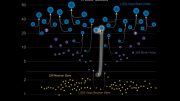
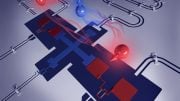
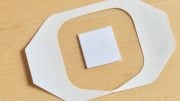
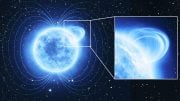
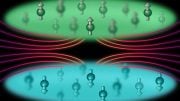
Be the first to comment on "Turning Quantum Noise Into a Teleportation Breakthrough"